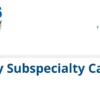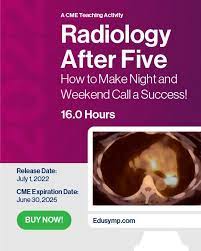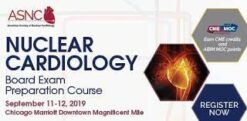MSKCC Geriatric Oncology for the Advanced Practice Provider Advancing the Future of Care 2025
$20
Include: 17 videos 14 pdfs, size: 3.53 GB
Target Audience: advanced practice providers, registered nurses, CRNAs, physicians (residents, fellows, and attendings), respiratory therapists, physical therapists, occupational therapists
Include: 17 videos 14 pdfs, size: 3.53 GB
Aging is a risk factor for the development of cancer. As the United States population ages, the need for clinicians skilled in the care of older adults with cancer will increase. Research, however, suggests that common geriatric syndromes and many psychosocial needs of older adult oncology patients are often unintentionally overlooked or under-addressed.
This one-day, evidence-based virtual course is designed to optimize the care of older adult oncology patients by advancing the knowledge and expertise of advanced practice providers. Key topics in geriatric oncology, including the use of geriatric assessments for older adults with cancer, will be discussed. Presentations will also focus on translating aging biology research into clinical practice, addressing polypharmacy, and increasing older adult representation in clinical trials.
This year, oncology experts will present emerging care strategies in the treatment of common cancers among older adults. Participants will also hear from scholars in the field of molecular neuroscience and pharmaceutical outcomes and policy regarding the links between cancer and dementia, and cancer outcomes associated with GLP1 receptor agonist use respectively.
This course is designed for advanced practice providers, registered nurses, CRNAs, physicians (residents, fellows, and attendings), respiratory therapists, physical therapists, occupational therapists, social workers, case managers, and other healthcare professionals in medicine and surgery who provide care for the older adult. We’re pleased to offer complimentary registration to health professional students and registrants who reside in low and lower-middle income countries (please refer to our Policy on Registration Discounts below for more information).
- Demonstrate understanding of the comprehensive geriatric assessment in the care of older adults with cancer
- Recognize and address polypharmacy in geriatric oncology patients
- Define current and emerging oncologic therapies for older adults
Topics:
Caring for the Older Population with Advanced Lung Cancer.mp4
Caring for the Older Population with Advanced Lung Cancer.pdf
CASE STUDY.mp4
CASE STUDY.pdf
Geriatric Oncology- Where We Have Been and Where We Are Going.mp4
Geriatric Oncology- Where We Have Been and Where We Are Going.pdf
GeriOncAPP2025_Brochure.pdf
GLP-1 Receptor Agonists and Cancer Outcomes.mp4
GLP-1 Receptor Agonists and Cancer Outcomes.pdf
How Do We Tailor Treatment for Bladder and Prostate Cancer in the Older Adult.mp4
How Do We Tailor Treatment for Bladder and Prostate Cancer in the Older Adult.pdf
Management of Breast Cancer in the Older Adult.mp4
Management of Breast Cancer in the Older Adult.pdf
Management of Colorectal Carcinoma in Older Adults, Balancing Risks and Benefits of Novel Therapies.mp4
Management of Colorectal Carcinoma in Older Adults, Balancing Risks and Benefits of Novel Therapies.pdf
Practical Assessment and Management of Vulnerabilities in Older Patients Receiving Cancer Therapies.mp4
Practical Assessment and Management of Vulnerabilities in Older Patients Receiving Cancer Therapies.pdf
Prescribing for Older Adults with Cancer.mp4
Prescribing for Older Adults with Cancer.pdf
Rising Tide, Limited Data- Bridging the Research Divide in Cancer Treatment for Older Adults.mp4
Rising Tide, Limited Data- Bridging the Research Divide in Cancer Treatment for Older Adults.pdf
SESSION Q&A- Advancing Geriatric Oncology Knowledge for the APP.mp4
SESSION Q&A- Emerging Care Strategies for the Older Adult with Cancer PART I.mp4
SESSION Q&A- Emerging Care Strategies for the Older Adult with Cancer PART II.mp4
SESSION Q&A- Geriatrics- Novel Care Beyond the Hospital.mp4
Translating Aging Biology Research to the Care of Older Adults with Cancer.mp4
Translating Aging Biology Research to the Care of Older Adults with Cancer.pdf
Updates on the Relationship Between Cancer and Dementia.mp4
Updates on the Relationship Between Cancer and Dementia.pdf
Utilization of the SPIKES Tool to Deliver Bad News in the Long-Term Care Setting.mp4
Utilization of the SPIKES Tool to Deliver Bad News in the Long-Term Care Setting.pdf
Related products
Uncategorized
Uncategorized
Uncategorized
Uncategorized
Uncategorized










